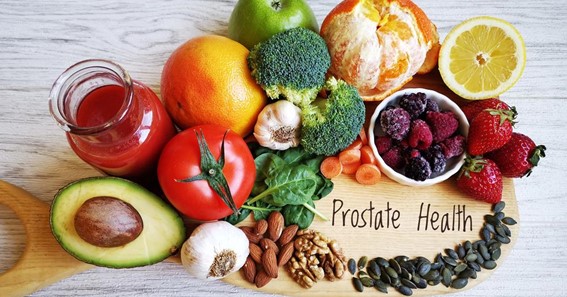About Prostate
Men of all ages should be concerned about their prostate health. It keeps you healthy and lowers your risk of certain diseases. As a result, it’s critical to understand what the prostate is and how to keep it healthy.
In men, the prostate gland is located between the bladder and the rectum. Its primary function is to produce fluid that aids in the nourishment and transport of sperm during ejaculation. Men’s prostates tend to grow larger as they age, which can lead to urinary issues such as difficulty starting or completely emptying the bladder, weak urine flow, frequent trips to the bathroom during the night, and pain or burning during urination.
Click here – 10 Ways Aspiring Professionals can Learn New Skills
Who Is At Risk Of Having An Enlarged Prostate?
Prostate enlargement, also known as benign prostatic hyperplasia (BPH), is a common condition that affects men as they get older.
According to studies, BPH affects approximately 50% of men in-between the ages of 51 and 60, 70% of men between the ages of 60 and 69, and 80% of men over the age of 70. While some men with BPH have no symptoms, for many, it causes urination problems such as elevated urinary frequency, immediacy, and a failure to totally empty the bladder..
Diet & Exercise Tips for Prostate Health
By following these simple diet tips, men can improve their prostate health and reduce their risk of prostate cancer.
- Eat Less Red Meat – Consuming less red meat can improve prostate health. Red meats like beef, pork, and lamb should be limited to three servings per week. Plant-based proteins, such as beans and lentils, are high in protein and should be preferred over animal proteins whenever possible.
- Eat More Healthy Fats – Omega-3 fatty acids have anti-inflammatory properties and have been linked to a lower risk of prostate cancer. Salmon, walnuts, chia seeds, flaxseeds, and olive oil are excellent sources of these healthy fats and should be included in the diet on a regular basis. You can also check for the best prostate supplements available on Health Web Magazine to maintain prostate health.
- Get Enough Vitamin E – Studies have shown that men who consume vitamin E-rich foods like almonds and sunflower seeds may be less likely to develop prostate cancer. To ensure adequate intake of this important antioxidant, include these foods in your diet on a regular basis.
- Consume Cruciferous Vegetables – Broccoli, Brussels sprouts, and cauliflower are high in nutrients that are known to reduce inflammation and the risk of cancer. Regularly incorporating cruciferous vegetables into meals can help improve overall health and, in particular, prostate health.
- Eat More Fiber – Eating a lot of fiber-rich foods has been linked to a lower risk of prostate cancer. Whole grains, legumes, fruits, and vegetables are all excellent sources of fiber that should be consumed.
- Limit Processed Foods – Highly processed foods are high in sodium and unhealthy fats, both of which can raise your risk of prostate cancer. Limiting your intake of processed foods is essential for good overall health and prostate health.
- Get Enough Vitamin D – Getting enough vitamin D has been linked to a lower risk of prostate cancer. Men over the age of 50 should aim for at least 600 IU of vitamin D per day, obtained through food or supplementation if necessary. Vitamin D is abundant in fatty fish, mushrooms, fortified dairy products, and eggs.
Click here – 9 Skills Needed To Be an Effective Public Health Leader
Importance of Exercise for Prostate Health
Exercise is one of the most effective and efficient ways to lower your risk of developing prostate disease. Regular physical activity keeps your body fit and healthy, and it can improve your overall health in a variety of ways. Exercise has been shown in research to reduce your risk of developing prostate cancer as well as the size of the tumor if it does develop.
Aerobic activities such as running or swimming, as well as strength training exercises, resistance exercises, and stretching or other flexibility exercises, have all been found to be beneficial in lowering the risk of prostate cancer. Maintaining a healthy body weight is also critical to lowering your risk of this type of cancer. Also, support your exercise with natural supplements such as Prostadine. You must read Prostadine reviews to get in-depth details about its benefits for maintaining prostate health.
Conclusion
Finally, eating a healthy diet and exercising regularly can help reduce the risks associated with prostate cancer. Eating fiber and antioxidant-rich foods like fruits and vegetables, as well as limiting red meat consumption, may help reduce the risk of developing this cancer. Regular physical activity can also help to improve overall health and lower the risk of certain cancers. While there is still much to learn about the relationship between diet and exercise and prostate cancer prevention, following these guidelines is an important first step.
